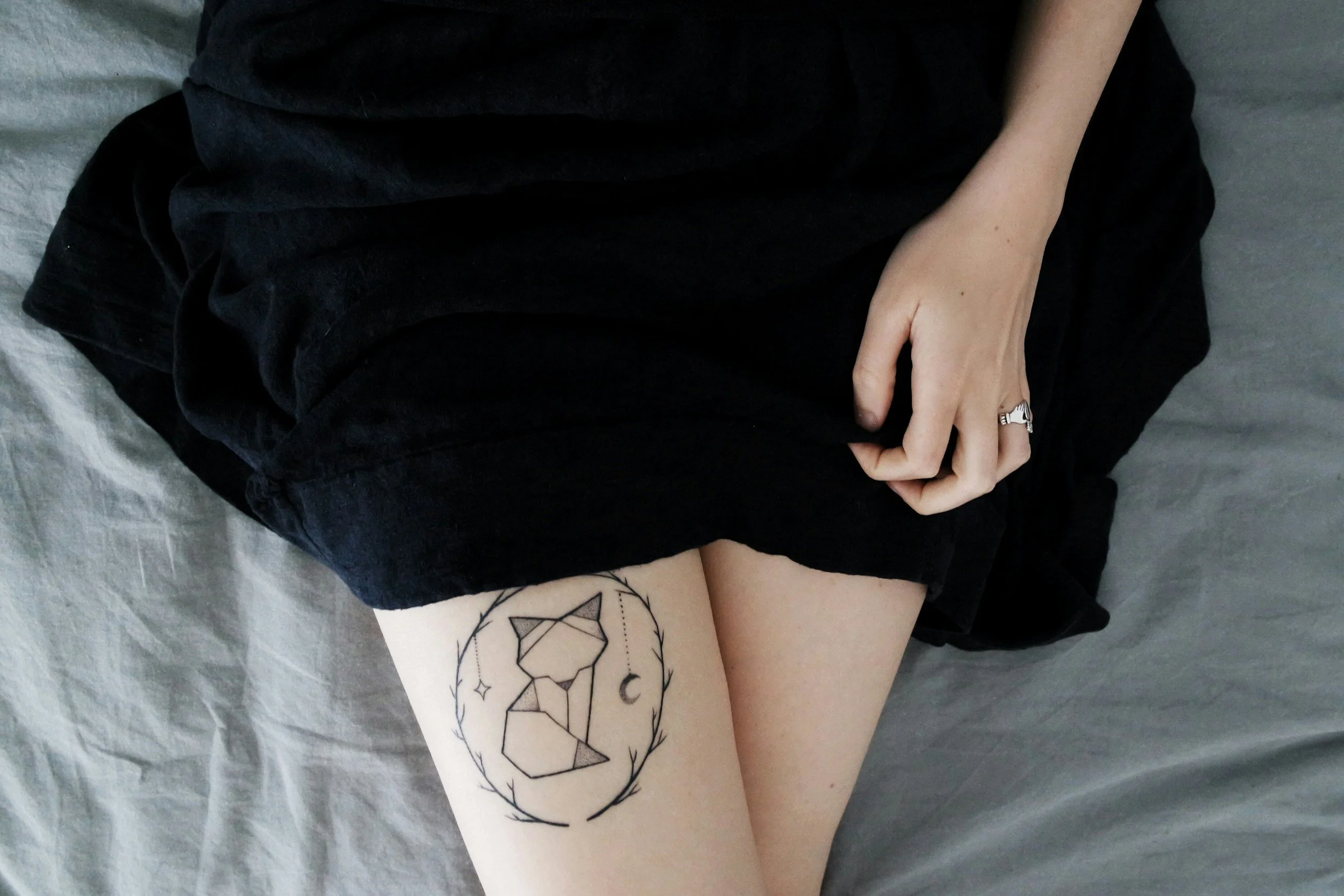Does Laser Hair Removal Affect Tattoos?
If you’re searching for the perfect long-term solution for unwanted hair, you’ve probably considered laser treatments. And if you have some ink, you’re probably wondering does laser hair removal affect tattoos?
Unfortunately, tattoos in your chosen treatment area will likely make you ineligible for laser hair removal. Join us to learn why laser treatment is off-limits for tattooed body parts and the risks of enduring this phototherapy technique when you already have ink.
How does laser hair removal work?
Laser hair removal uses light energy to target melanin in the skin. Upon contact, hair follicles absorb this energy as heat, which destroys the follicle.
Is laser hair removal permanent?
Yes and no. Laser hair removal is considered a semi-permanent procedure for unwanted hair. It effectively eliminates targeted follicles, so they will no longer produce new strands.
However, new follicles can form due to hormonal changes and genetic factors. With that in mind, most people can maintain their results indefinitely with occasional touch-up appointments.
Who’s a good candidate for laser hair removal?
In general, patients with darker hair color and lighter skin tones are the best candidates for laser hair removal. Men and women with thick, coarse strands may see faster results since the laser device may be able to efficiently identify and destroy hair follicles.
Benefits of laser hair removal vs other methods
Unlike shaving, waxing, and plucking, laser hair removal offers long-term hair reduction. You can enjoy months or years of silk-smooth, stubble-free skin once you complete your initial treatment series. With proper care and preparation, there’s also a lower risk of ingrown hairs, irritation, and other complications with laser hair removal vs other methods.
Can you get laser hair removal over a tattoo?
In most cases, it’s best to avoid laser hair removal in areas where tattoos are present. Even cutting-edge lasers can’t differentiate between the melanin in your hair roots and the pigment from your tattoo. Here are a few more things to consider:
Tattoo colors
Some colors are more sensitive to laser beams than others. Contrary to popular belief, dark colors like black, navy blue, and gray are the first to disappear upon exposure to concentrated light waves. That’s because the technology targets melanin and can’t differentiate between ink and natural skin pigments.
Skin type
Even if you have thick skin and a high pain tolerance, laser hair removal methods can be highly uncomfortable and cause burning and blistering over tattoos. Your skin will absorb all that excess heat in areas with dark ink, compounding the discomfort many already experience during basic laser hair removal sessions. To make matters worse, you’ll also ruin your body art at the same time.
Laser intensity
Most types of laser devices incorporate specific wavelengths for either tattoo removal or hair removal, and they may not be interchangeable. For instance, lasers that remove unwanted hair work on more superficial layers of skin than those for tattoo removal. So, using a laser designed for hair removal may cause increased pain, tattoo distortion, and minimized results compared to areas without ink.
If you want to remove a tattoo and unwanted body hair from a certain area, you may need to opt for a corrective laser that uses a wavelength compatible with tattoo removal. This is because it’s less likely to cause significant discomfort. However, it may not offer the hairless results you were hoping for.
In any case, ensure that your aesthetician is a certified expert with plenty of experience using laser devices over tattoos. You may need to visit a med spa or dermatologist to receive proper care.
What are the risks of laser hair removal on a tattoo?
Still, considering laser hair removal over a tattoo? Here are a few reasons to think twice:
Permanent discoloration
Using the wrong laser device over a tattoo can damage your skin and result in permanent discoloration of the area. In a worst-case scenario, you might end up with painful burns, hyperpigmentation, a partial tattoo, and hair growth that’s completely unaffected by laser treatment.
Tattoo distortion
The wavelengths used in laser devices can scatter the pigments in your tattoos, resulting in blurry, distorted artwork. Eventually, your body will filter out the targeted pigments through your waste system. However, it’s unlikely to remove the tattoo completely, leaving you with a faded and warped version of your ink.
Skin irritation or inflammation
When you treat a tattooed area with lasers intended for hair removal, you risk damage and burns to the skin. Remember, the light energy created by laser devices is absorbed as heat energy.
Rather than that heat working solely on tiny hair follicles, it will affect any skin containing ink, creating an uncomfortable sensation and increasing the chance of complications.
Have tattoos? Explore your laser alternatives at The Wax Room!
The hair removal experts at The Wax Room are here to help you embrace your skin and eliminate unwanted hair! Whether you’re looking for a long-term solution for face and body hair or you want to establish a consistent hair removal routine, we can help.
Reach out today to learn more, or book an appointment online to get started!

